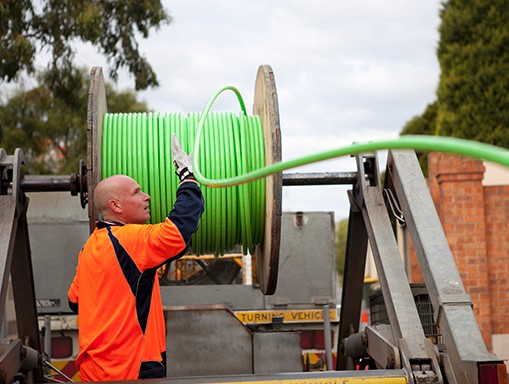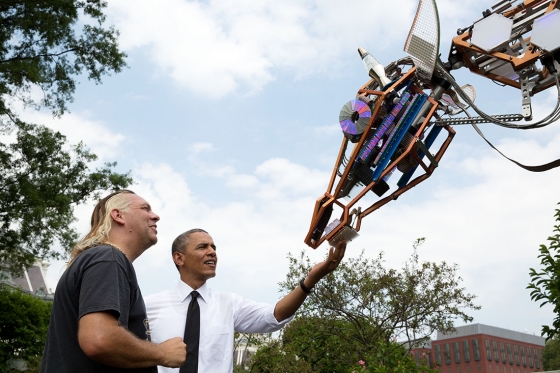Watching from afar, the reaction to Malcolm Turnbull becoming Australia’s 29th Prime Minister has been remarkable as suddenly the nation seems to have collectively woken up to the fact they are fifteen years into a new century.
In a few short weeks Australian public servants have started engaging in hackathons and business leaders whose idea of an investment was a property plan disguised as a casino have started raising VC funds.
The question though for Australia is this too little and too late after three decades of concentrating on property speculation and betting on a never ending Chinese economic miracle?
New leadership
In Malcolm Turnbull – who only rejoined the Liberal Party in the early 2000s after careers as a journalist, barrister and banker – Australia for the first time in forty years doesn’t have a party apparatchik as Prime Minister.
While this wasn’t a problem during the 1970s and 80s under Fraser and Hawke, by the 1990s the shrinking membership base of Australian political parties meant increasingly the ‘talent’ coming up the ranks was lacking perspective outside the narrow factional groupings most of them were beholden to.
This became brutally apparent with the last three Prime Ministers who were fully hostage to their party factions. In Gillard and Abbott Australia had two party operatives who were no doubt talented in internal party manouvering but hopelessly out of their depths as government leaders – Abbott often seemed to be more interested in settling the battles of 1980s Sydney University student politics than governing the country.
Describing Prime Minister Rudd would take a thesis in political psychology which is way beyond the scope, or interest, of this writer.
The consequences of this were an Australian political leadership that was disinterested in the real economy beyond guaranteeing the social compact that property prices would double every decade and ensure their support in the key swing electorates of suburban Australia.
An insular business community
For the business community the insular focus of Australian society and its politicians worked well too. As the economy turned inwards in the 1990s under the Keating and Howard governments, so too did Australia’s conglomerates who realised clipping the ticket of a consumer economy was far easier than competing on global markets.
The best example of this were Australia’s banks which essentially gave up on lending to business unless it was guaranteed by property. This graph from Macrobusiness illustrates just how the nation’s banks focused on property speculation.

That focus on housing and consumer spending underpinned on rising property prices distorted the entire business sector and ingrained in the Australian psyche that the key to riches and prosperity was to get a relatively low skilled ‘safe job’ and borrow as much money as possible.
A good example of this are the regular stories of sweet twenty something wunderkinds who have built multi million dollar property portfolios while working in pizza shops or as administrative assistants.
Possibly the greatest damage Australia’s property obsession has been on the nation’s youth where the message has been ‘don’t gain a globally competitive skill set or education, just get an entry level job at the real estate agents and buy as much property as the bank will allow you.’
Turnbull’s challenge
Like Gough Whitlam, the last Prime Minister not a creature of their party factions, the reform challenge facing Turnbull is immense as 25 years of complacency have left Australia with an uncompetitive economy – as it had for the incoming Labor government of 1972 – with added complexity of having to maintain property prices to keep its economic miracle and social compact ticking over.
The similarities to Whitlam are also striking in the support Turnbull has from the population. One of the striking things on returning to Australia after spending most of the last three months in the United States has been the sense of relief that the inept horror movie of the Abbott government (Attack of the Clueless Zombies) is over and a realisation that Australia has actually entered the 21st Century and not regressing back into the 19th.
Agendas for reform
Entering the 21st Century won’t be easy though for Australia. Completing the reforms of the education sector, started half heartedly by Gillard and then trashed by Abbott in settling the scores of his student politics days, is one major challenge along with reforming tax and social security systems that focuses on asset hoarding and speculation over productive investment.
Possibly a greater challenge is to wean the Australia business sector off its ticket clipping mentality and rediscover its desire to compete globally. It may well be that encouraging the startup sector makes more sense in rebuilding the economy’s competitiveness as many of the nation’s insular conglomerates and their well fed executives are too used to milking the domestic consumer rather than taking on the world.
The end of kitchen renovations
The biggest challenge of all though will be to wean Australians off their property addiction, particularly those under 50 who have neglected their global skills as they focused on renovating their kitchens.
Given the scope of these reforms, such an agenda will require a clear mandate from an electorate that has been complacently accepting guaranteed good times as long as refugees are turned back, the terrorists among us imprisoned and gay couples prevented from marrying for the last 25 years. Making the argument for change is probably going to be Malcolm Turnbull’s greatest task.
For Australia the stakes are high. It’s not likely the 21st Century will be as kind to The Lucky Country as the Twentieth was.




